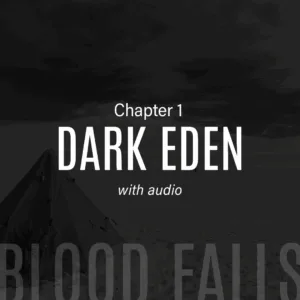What is the Rapture? Is the idea Biblical?
There is ample evidence in Scripture of a pre-tribulation Rapture, or “snatching away,” of believers before God’s prophesied judgment upon the earth known as the Tribulation. In recent years the doctrine has fallen into disfavor by those preaching various versions of the heresy that the Church has replaced Israel and that she must develop a theocratic government on Earth which will receive Christ from heaven. Others believe in the doctrine of the Rapture but argue for a mid or post Tribulation timeline.
Isn’t the idea of a “rapture” just some theory started in the 1830’s?
Detractors of the Rapture doctrine claim a man named J.N. Darby developed the theory in 1830 and was heavily influenced by others. A more careful review of the facts reveals a different story. Darby’s beliefs coalesced during December of 1827 through January of 1828 as he convalesced from injuries suffered in an accident. While he recuperated, he studied the Scriptures.
He didn’t invent the idea of the Rapture. He helped bring the doctrine to light.
People forget the Bible was not commonly accessible for individual study for centuries. The official Bible was the Latin Vulgate, and church services were conducted in Latin. Though vernacular copies existed in other languages in Europe, no English version existed until William Tyndale produced a translation in 1526. For this gift to humanity, he was executed.
Though the traditional date of the Reformation is October 31, 1517—the day Martin Luther nailed his Ninety-Five Theses on the Castle Church door in Wittenberg, Germany—Luther was not the first of the reformers. Men like Wycliffe, Erasmus, Francis of Assisi, and Lefevre unlocked the Word of God for individual and corporate study, launching an era of new understanding of the Bible. We owe much of our freedom to access the Scriptures and the abundance of knowledge within its pages to the sacrifices of these believers.
Not only can the concept of a “snatching away” of believers be found in Scripture, it’s introduced in the first book of the Bible.
The Enoch Generation
Jesus taught about the last days from the book of Genesis.
The Bible speaks clearly of an event just preceding the beginning of the seven years of God’s judgment—the Tribulation—that will come upon the earth. This event has significant basis in Scripture, beginning with Noah’s flood.
Why do we start all the way back in Genesis?
For one thing, Jesus taught His disciples that the condition of the world before His second coming would be like the days of Noah. To understand what is coming, we must take the biblical account, study it, and learn.
All Scripture is inspired by God and profitable for teaching, for reproof, for correction, for training in righteousness; so that the man of God may be adequate, equipped for every good work.
– 2 Timothy 3:16-17
Since all of God’s Word is in the Bible to instruct and train us, we should be able to discover meaning even in its cryptic verses. In Genesis 5:24 we read about a man called Enoch.
Enoch walked with God; and he was not, for God took him.
– Genesis 5:24
If all Scripture is inspired and important for our instruction, what can we learn from Enoch?
The New Testament tells us Enoch was a prophet. He looked forward to the day of the Lord’s return to bring justice to earth. He was the great-grandfather of Noah. He was the father of Methuselah, whose name some believe can be translated “when he dies, it shall come.” Methuselah died the year the flood came.
By faith Enoch was taken up so that he would not see death; and he was not found because God took him up; for he obtained the witness that before his being taken up he was pleasing to God.
– Hebrews 11:5
Before God brought judgment upon the earth, Enoch disappeared without a trace. He did not die. He was “taken up” by God.
It was also about these men that Enoch, in the seventh generation from Adam, prophesied, saying, “Behold, the Lord came with many thousands of His holy ones, to execute judgment upon all, and to convict all the ungodly of all their ungodly deeds which they have done in an ungodly way, and of all the harsh things which ungodly sinners have spoken against Him.”
– Jude 1:14-15
Enoch was a righteous man who believed in, preached about, and looked forward to the day God would come and make all things right. He prophetically named his son one whose death would occur just before a judgment fell. He walked with God, never experienced death, and disappeared from Earth before the flood.
What does all this mean?
It means Enoch represents something, or someone. That someone is the Church, the Bride of Christ. Just before judgment falls upon the earth, Jesus will resurrect and gather all those throughout history who have taken Him as their Savior. We call this event the Rapture.
I’ve been told the word “rapture” isn’t in the Bible.
Many who doubt the validity of the Rapture are quick to point out the word isn’t in the English Bible. As others have noted, this is hardly a reason to reject the principle, since the word “Trinity” is not found in the Bible yet is a foundational tenet of the Christian faith. Not even the word “Bible” is found in the Bible.
The word we describe as the Rapture comes from the Latin words rapere, meaning “rapid,” and rapiemur, meaning “we shall be caught up.” These are the words found in the Latin Vulgate used by the Catholic Church. But the original Greek verb harpazo from which the Latin word was taken means “to snatch or catch away.” It is the word God used to describe those snatched up and set in another place. Examples of this “snatching away” are in Acts 8:39-40; 2 Corinthians 12:2, 4; 1 Thessalonians 4:17; Revelation 12:5.
People were “raptured” in these biblical accounts.
The passage in Acts 8:39-40 is especially revealing. In that account, the disciple Philip had just preached the Gospel to an Ethiopian eunuch. The eunuch gladly received the good news and asked to be baptized. Philip accommodated him, baptizing him on the spot in a nearby body of water.
When they came up out of the water, the Spirit of the Lord snatched Philip away; and the eunuch no longer saw him, but went on his way rejoicing. But Philip found himself at Azotus….
– Acts 8:39-40
In the same way, believers will be “snatched away” to meet Christ in the air. An important difference is that the Rapture involves the resurrection and carrying away of all believers, living and dead, whereas Philip was one man moved to another location without receiving a new body.
For the Lord Himself will descend from heaven with a shout,
with the voice of the archangel and with the trumpet of God,
and the dead in Christ will rise first.
Then we who are alive and remain will
be caught up together with them in the clouds
to meet the Lord in the air,
and so we shall always be with the Lord.
– 1 Thessalonians 4:16-17
Photo 122007121 © Dakotastudios | Dreamstime.com
Coming next week: Behold the Bridegroom
Learn more about Blood Falls the book at bloodfalls.net
This weekly series follows the story line of the Christian thriller Blood Falls. Each episode occurs in chronological order, giving context, perspective, and Biblical foundation for the novel. Discover the true stories and incredible facts behind the book! See the entire series here: https://cmaddict.com/tag/behind-blood-falls/


























Leave a Reply